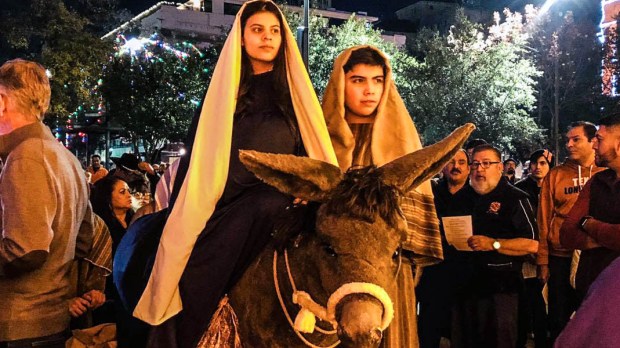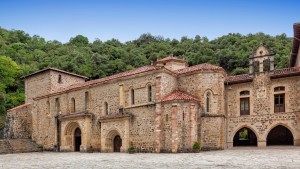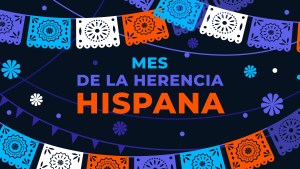As Christmas season approaches, Hispanic communities around the world eagerly prepare to celebrate Navidad with a diverse range of traditions that spring from their cultural heritage. These festive customs not only add a vibrant flair to the holiday season, but also provide a unique glimpse into the different ways in which Christmas is celebrated — and into the many ways in which the Christian faith is rooted in different communities around the world, Spain being one of the earliest cradles of Christianity. Here are three distinctive Hispanic Christmas traditions that encapsulate the warmth and joy of the season:
Las Posadas: A symbolic, festive journey to Bethlehem
In many Latin American countries, the celebration of Las Posadas is a cherished tradition that reenacts the biblical journey of Mary and Joseph seeking shelter in Bethlehem. Beginning on December 16 and lasting for nine nights, this event involves a procession where participants — often neighbors and community members — travel from house to house, singing traditional carols. The hosts, representing the innkeepers, deny entry until the designated “inn” finally welcomes the group with open arms.
The celebration culminates in a Mass, fostering a sense of community and solidarity. In some countries (mainly in the Spanish Caribbean, but also in Trinidad and Tobago), Posadas are referred to as Parrandas –another Spanish word for “celebration,” or even “party.”
Nochebuena: The quintessential family gathering
Nochebuena, or Christmas Eve, holds significant importance in Hispanic culture — in fact, it is as important as Christmas itself. Families come together on the night of December 24 to share a lavish feast that typically includes traditional dishes from tamales to salted codfish — depending not only on the country, but also on local and even familiar traditions.
A centerpiece of the celebration is the Cena de Nochebuena, an overabundant family dinner that is way more than a culinary extravaganza: it is a testament to the importance of family bonds and the joy of sharing precious time with loved ones. The abundance of the table symbolically represents the Incarnation of Christ: an overabundance of grace.
Día de los Santos Inocentes: A Hispanic twist on April Fools’ Day
In many Spanish-speaking countries, December 28 is celebrated as Día de los Santos Inocentes — as a liturgical reminder of the Massacre of the Innocents. However, the celebration takes a somewhat unexpected twist. In some Hispanic cultures, this day is reminiscent of April Fools’ Day. On this day, pranks and jokes are played on unsuspecting, “innocent” friends and family members.
Yes, the tradition has its roots in the biblical story of King Herod’s ordering the execution of all male children who are under two years old, and while it may seem unusual to associate humor with such a somber biblical episode, the lighthearted spirit of Día de los Santos Inocentes also serves as a reminder of the joyful resilience that is characteristic of Hispanic culture.
In embracing these traditions, Hispanic communities worldwide celebrate Christmas by weaving yet another part of the infinitely rich tapestry of Christian practices that add meaning and depth to this universal holiday season.



